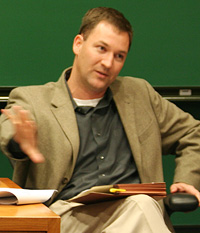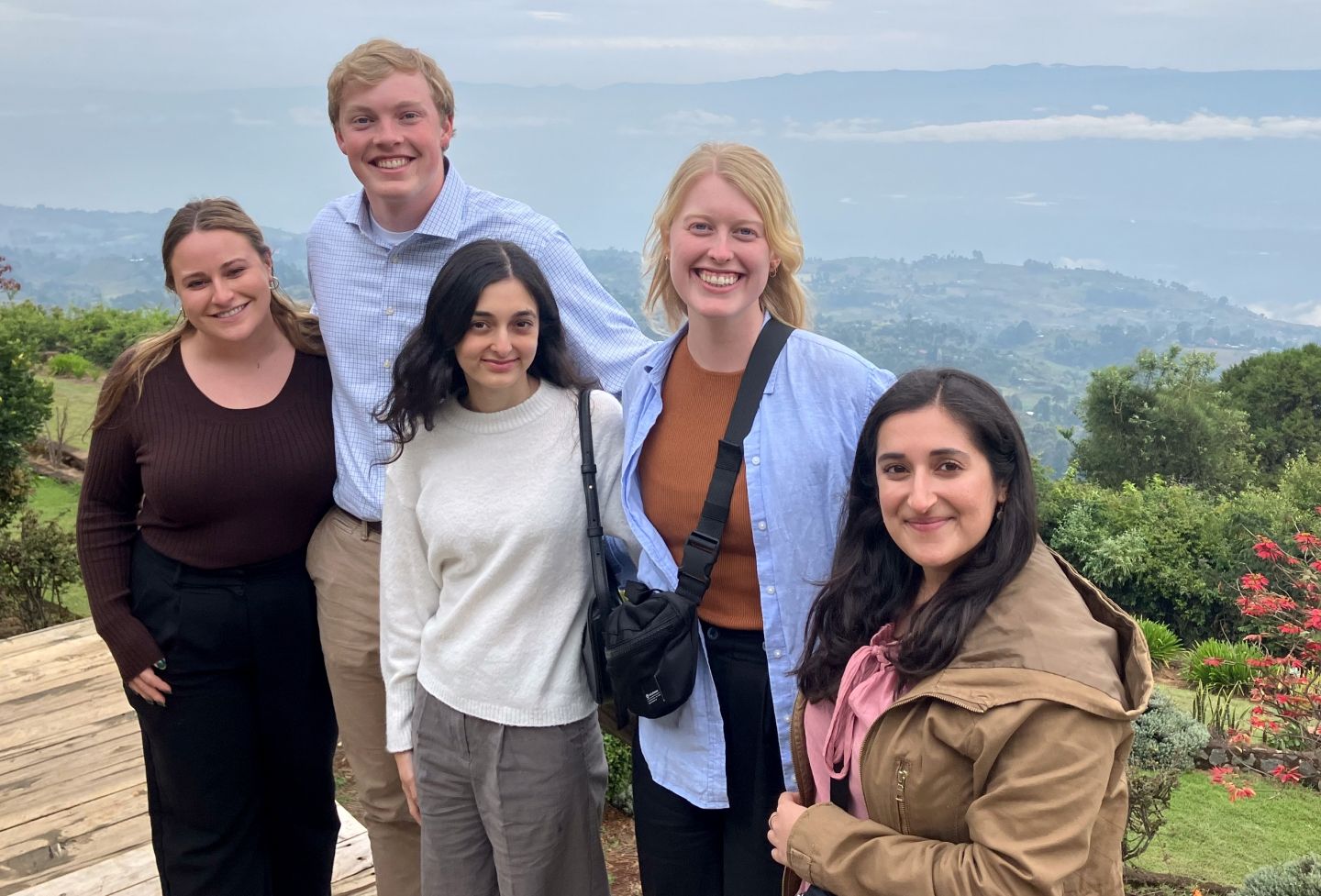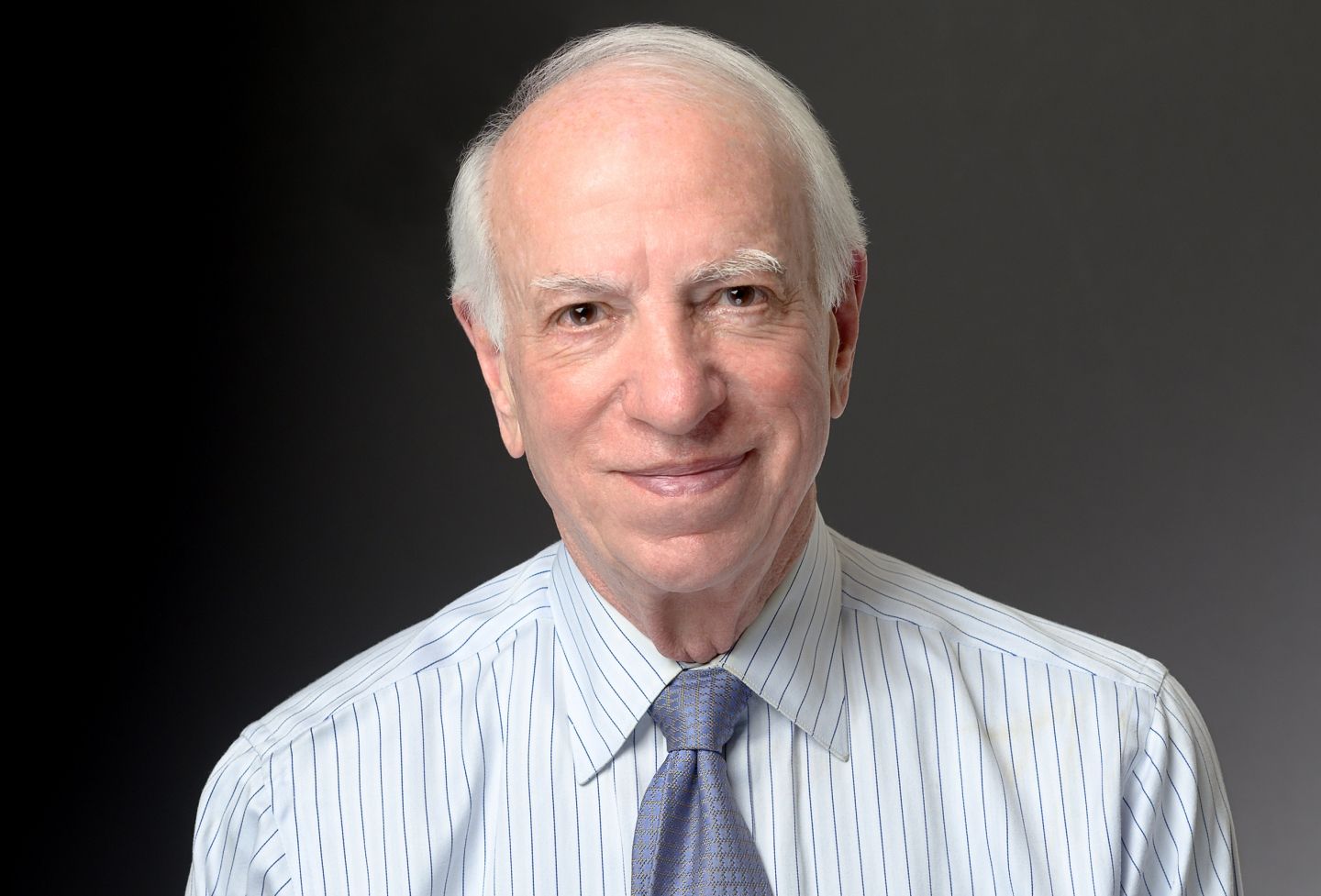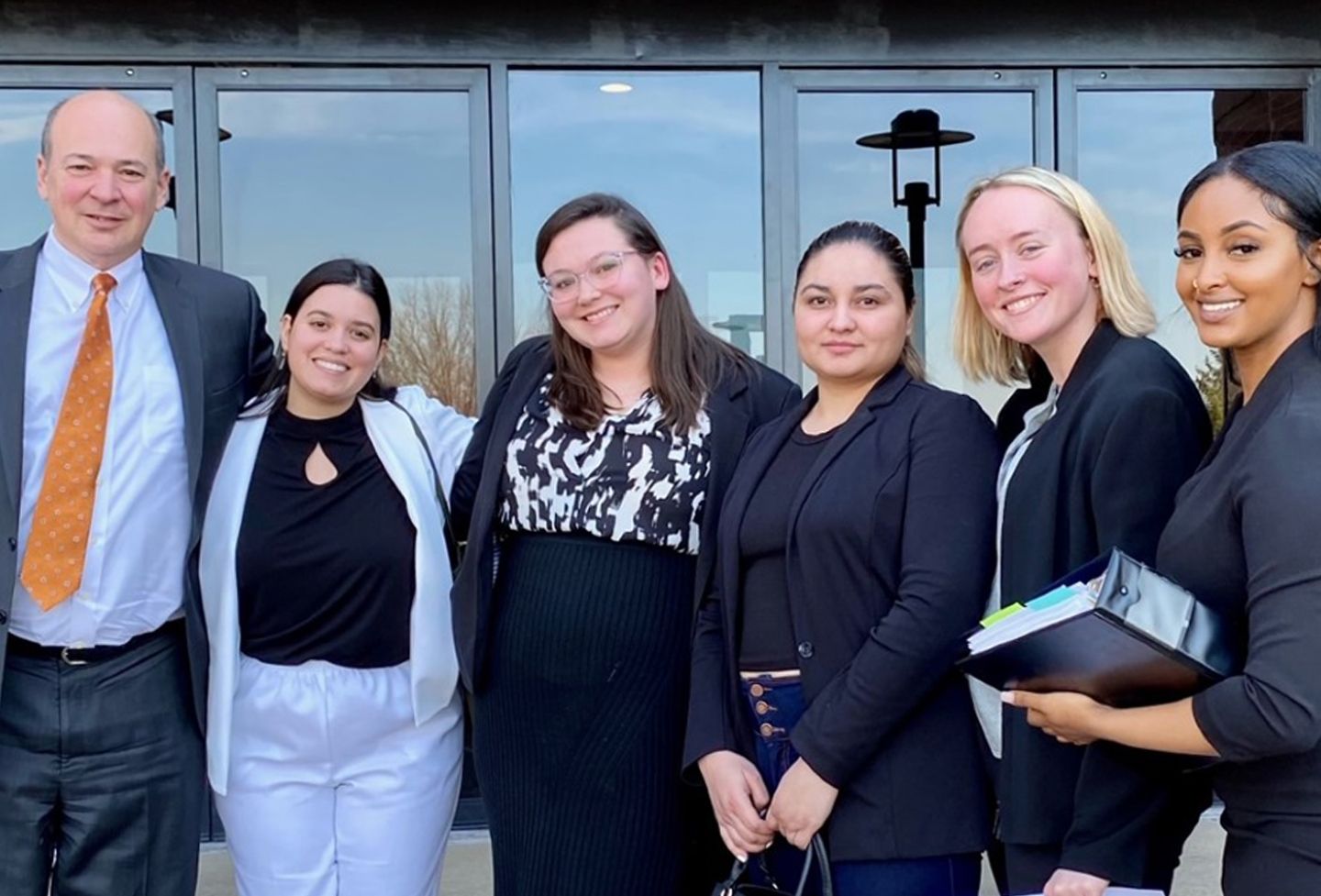Ballenger, Cooper Debate the Right of Access to Developmental Drugs
Law school students gathered on Oct. 4 to witness a debate between Scott Ballenger, counsel for Abigail Alliance, and Richard Cooper, former chief counsel for the FDA, on whether or not terminally ill patients have a constitutional right of access to developmental drugs.
 The Abigail Alliance is named for Abigail Burroughs, a UVA student diagnosed with terminal head and neck cancer. As a last resort, she applied to participate in a clinical trial for an unapproved drug. She was denied access to the trial and died shortly after. Her father formed the Abigail Alliance for Better Access to Developmental Drugs to advocate for greater access to developmental drugs.
The Abigail Alliance is named for Abigail Burroughs, a UVA student diagnosed with terminal head and neck cancer. As a last resort, she applied to participate in a clinical trial for an unapproved drug. She was denied access to the trial and died shortly after. Her father formed the Abigail Alliance for Better Access to Developmental Drugs to advocate for greater access to developmental drugs.
According to Ballenger, his clients claim that if you are terminally ill, and have exhausted all of the approved treatment options, you ought to have a fundamental right under the due process clause to decide for yourself whether the benefits of using an unapproved drug outweigh the risks. “There has always been a category of unenumerated fundamental rights that are recognized under the due process clause,” Ballenger said, naming the rights to contraception and abortion as examples.
The position of the Abigail Alliance is that the right to access to developmental drugs deserves to be on the list of unenumerated fundamental rights, Ballenger explained. “Although these cases are always very controversial in the aftermath of Roe v. Wade, we think that this one ought not to be as controversial as it has been, and isn’t nearly as radical as it might first appear,” he said.
According to Ballenger, the FDA’s primary defense has been to rely on a federal policy that people should not take drugs until they have been thoroughly tested in scientific clinical trials. “That sounds like a noble and sensible policy,” Ballenger said, “but if you push on it, there are actually a remarkable number of holes.” Those in clinical trials are allowed to make the choice to take an unapproved drug, he said. Furthermore, if a drug is approved for any use, a doctor can prescribe it for any other use if he believes it might be effective.
“The FDA also has a policy of non-enforcement with regard to the possession of investigational drugs for your own use,” Ballenger said. This means that you can fly to any other country to get a drug that is unapproved by the FDA, bring it back to the United States, and the FDA will not object, he explained.
“So, this supposed general policy that we don’t allow people in this country to take drugs unless they have been proven safe and effective by rigorous clinical trials isn’t quite what it’s cracked up to be,” Ballenger said.
Ballenger also argued that how a person is going to face imminent death is “far more profoundly personal…than a lot of the decisions that the Supreme Court has recognized as implicating fundamental rights,” such as contraception and the decision to send children to private school.
Ballenger cited the case Cruzan v. Director, Missouri Department of Health in which the Supreme Court recognized the fundamental right to die. “If you have a fundamental right to refuse all medical treatment and die,” Ballenger said, “why in the world don’t you have a right to choose to take some risks with your life in treatment to live?”
In conclusion, Ballenger mentioned the common law tradition of the right to self-preservation. According to the framers of the constitution, self-preservation is the first law of nature, and “people are privileged, at common law, to violate ordinary legal rules in life-threatening circumstances,” he said.
In response, Cooper referenced the case of Chad Green, a child who was suffering from leukemia in the 1970s. According to Cooper, despite the fact that Green had a very treatable form of the cancer, his parents chose to take him to Mexico to be treated with an experimental drug. Green died soon after he began the treatment. “How many Chad Greens would you, as a member of this society, be prepared to see die?” Cooper asked.
Cooper argued that the issue is not whether terminally ill patients should have access to unapproved drugs. “The issue is whether there should be a constitutional right to access,” he said.
“What turns on the answer to that question,” Cooper continued, “is whether the contours of the access right should be defined by judges and justices, or should be defined by the political branches.
“As you think about this issue, think about which procedures are more in tune with our societal way of dealing with these issues,” Cooper said. “Does the text of the Constitution answer this question? I think it does not.” Cooper also argued that he does not believe there is established jurisprudence that answers this question.
He added that in the area of substantive due process, there is very little “hard law.” There are “moods, attitudes, predilections,” but there are no legal formulas. According to Cooper, what’s really at stake is whether the courts are prepared to say that this is an issue in which the political processes have failed.
Cooper argued that in all the cases Ballenger mentioned, the Supreme Court had to apply federal law against an errant state. “It was arguable that the state was, in some way, out of touch with a national consensus that had emerged on an issue that people thought was important,” he said.
Substantive due process is fundamentally about human rights, Cooper said. “Is the issue that’s presented here, one in which the political branches of government have failed, and is there no reason to believe that they can address it appropriately?” he asked.
Cooper asserted that this is an issue in which the political process is working. He cited a statute enacted in 1997, describing criteria for access to developmental drugs. “The political process is en route to delivering something like [Ballenger] wants,” he said, without the courts taking control of the situation.
According to Cooper, if enough people believe the FDA isn’t moving fast enough, they can go to Congress, and they will hold a hearing. “That’ll focus the attention of the commissioner of the FDA, if he has to show up at a hearing to defend his agency,” Cooper said.
Cooper explained that he believes that the Supreme Court should take issues away from political branches only when it is believed they have failed. In Cooper’s opinion, this is not such a situation.
Founded in 1819, the University of Virginia School of Law is the second-oldest continuously operating law school in the nation. Consistently ranked among the top law schools, Virginia is a world-renowned training ground for distinguished lawyers and public servants, instilling in them a commitment to leadership, integrity and community service.


